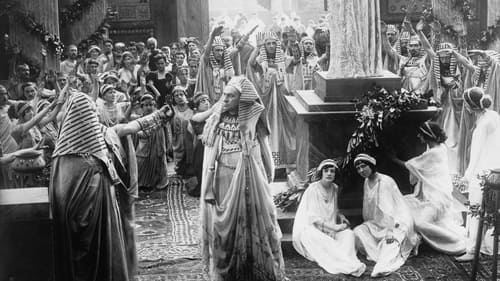
Gasperina

The Idiot, by Fyodor Dostoevsky.

A homeless girl gets taken in by a painter.

Il Fiacre n. 13, from the novel of the same title by Xavier Henri Aymon Perrin, Count of Montépin, a highly prolific and much-loved author whose books were vehicles for the depiction of social inequality, narrating stories of love, death, betrayal, blackmail, and redemption. The sweeping narrative of Il Fiacre n. 13 was mutilated by the Italian censor’s suppression of its first part, the most cynical episode, which sets the scene for a scheme discernable in the other three episodes, as the story develops from a sordid murder through plotting and deceit to finally reach a happy ending.

Hoping to please her, some children give their grandmother an electric lamp for her birthday, but the elderly lady does not intend to put the old oil lamp in the attic and tells the young people that the object has a huge value for her.

Nydia
Em 79 A.D., o respeitável pompeiano Glaucus tem um ato de generosidade ao comprar Nídia, uma escrava cega que é maltratada por sua dona. Nídia apaixona-se pelo novo mestre, mas ele só tem olhos para Jone. Esta, por sua vez, é cobiçada por Arbace, sacerdote egípcio de Ísis. Quando Nídia implora o auxílio de Isis para conquistar o coração de Glaucus, Arbace dá a ela uma poção de amor que afeta a mente, mas não o coração de Glaucus.

Beatrice Portinari
Early biopic of Dante. From the Cineteca Milano collection.

A Italian variation of the Cinderella story.

Nelly
A melodrama about a female lion tamer who has an extramarital relationship with a distinguished gentleman, and then moves in with him. When she later comes to regret her actions, her husband has already died of sorrow.

Lizette
Two Merry Jokers get "caught with the goods." Leah and Lizette receive notes from their respective admirers, who wish to arrange a holiday party. Leah suggests that the three come to her house and have a jolly time. The two sweethearts, Tony and Fritz, are married men, Tony being Fritz's father-in-law. Each leaves home in the morning, claiming to have an important engagement for the day. Fritz arrives first, with parcels of good things to eat, and Lizette and her friend Tony arrive soon after. The scene which follows may be better imagined than described. However the two men pledge secrecy, and the party proves a huge success. An unexpected sequel follows the next day, for the wives happen to make purchases at the millinery shop in which the girls are employed. On delivering the hats, Leah and Lizette meet their sweethearts and learn that they are married men. Accusations, excuses and a general scrimmage follow. In which the husbands certainly "get theirs." —Moving Picture World

A mother confronts Death as to why he has to take her young boy. And he shows her the future to explain why he need to be eliminated.
![Faust [excerpt]](/assets/images/no-backdrop.png)
This is not the Faust which Méliès made, but another version. The last half of the film is missing. It is interesting to note how, in an effort to let the audience know what the actors were thinking, visions were used as here when the tapestry on the wall gives place to Marguerite’s memory of her meeting with Faust.

An Italian movie about Othello.






![Faust [excerpt]](/assets/images/no-backdrop.png)